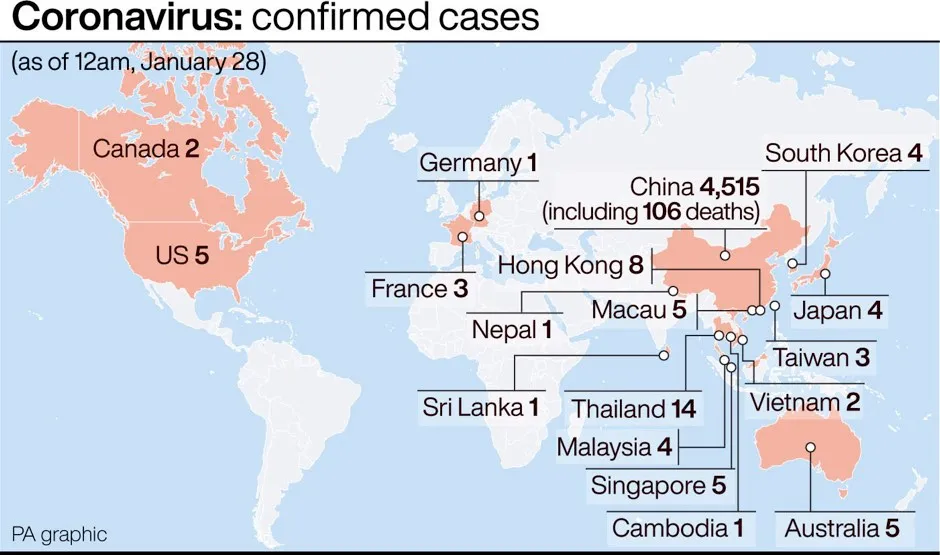Scientists have successfully grown a version of the Wuhan coronavirus which could pave the way for the development of a vaccine against the deadly illness.
Researchers from The Peter Doherty Institute for Infection and Immunity (Doherty Institute) in Melbourne said the breakthrough will allow for accurate investigation and diagnosis of the virus globally.The Doherty Institute’s Virus Identification Laboratory Head Dr Julian Druce called the development a “game changer”.
The virus, which is believed to have emanated from the city in Hubei province, has killed 132 and infected nearly 6,000 people around the world.
“Chinese officials released the genome sequence of this novel coronavirus, which is helpful for diagnosis, however, having the real virus means we now have the ability to actually validate and verify all test methods and compare their sensitivities and specificities,” Dr Druce said.
“The virus will be used as positive control material for the Australian network of public health laboratories, and also shipped to expert laboratories working closely with the World Health Organisation (WHO) in Europe.”
The virus was grown from a patient sample that the Doherty Institute received on Friday.The laboratory-grown virus is expected to be used to generate an antibody test, which allows detection of the virus in patients who have not yet displayed any symptoms.
Deputy Director of the Doherty Institute Dr Mike Catton said the team had been planning for an incident like this for some time.

“An antibody test will enable us to retrospectively test suspected patients so we can gather a more accurate picture of how widespread the virus is, and consequently, among other things, the true mortality rate,” Dr Catton said.“It will also assist in the assessment of effectiveness of trial vaccines.
“We’ve planned for an incident like this for many, many years and that’s really why we were able to get an answer so quickly.”
Coronavirus: is it a cause for panic?
2019-nCoV presents with flu-like symptoms (head and muscle aches, sore throat, runny nose, coughing) but is capable of causing respiratory distress, pneumonia and potentially death. Furthermore, it’s contagious before the symptoms show. So is it cause for panic?
“It’s a serious situation,” says Prof Mark Fielder, a medical microbiologist at Kingston University. “We’re approaching it with caution but I don’t think alarm. Not alarm yet because what we need to remember is that most of the cases – in fact all of the cases, as things stand – have come from people with direct links to Wuhan or other local cities where the virus is present.
"It hasn’t moved into people without direct links to Wuhan or the other provinces… We’ll become a little more concerned if that does happen but at the moment it hasn’t.”